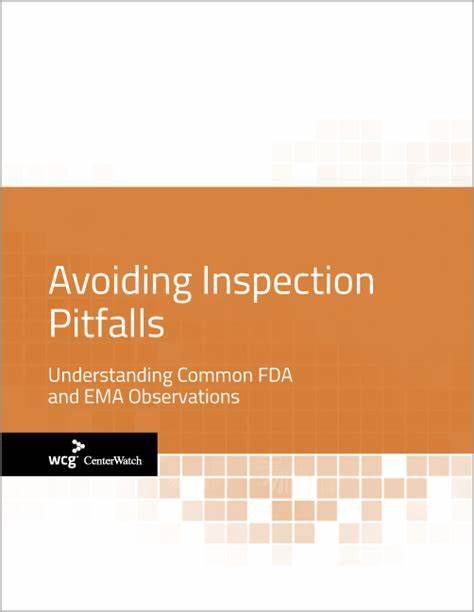Discover how life science companies can avoid common FDA inspection pitfalls. Learn about the importance of compliance, internal audits, and the role of compliance consultants.
Common FDA Inspection Pitfalls: How to Avoid Them?
Compliance within the life science industry is a vital part of business operations. The US FDA is a vital regulatory body for this industry, as it governs drug development to medical device manufacturing. If you fail an FDA inspection, it can result in severe adverse ramifications including fines, product recalls and tarnish a company reputation.
Below we will be discussing typical FDA inspection botches for life science companies and how you can evade them to make sure that you are prepared.
Not keeping ‘an on-going culture of compliance’ for a life science company is one of the quintessential mistakes realized during FDA inspections. Such as not training and make employees aware of what to do, also not communicating the proper mechanisms for policies and procedures.
This includes not only keeping good records but also conducting internal audits often enough to spot any issues prior to an inspection. Some of the most common ones to avoid are lack of proper procedures.
Preventative Measures of FDA Inspection Pitfalls
Life science companies have to take several steps to avoid potential pitfalls associated with an FDA inspection.. This encompasses standard instruction, policy and procedure communication, and a defined understanding of roles and responsibilities.
We recommend the routine performance of internal audits and mock FDA inspections to discover and correct issues before FDA review begins. It is important to be accurate in recording and responding to the data to stay compliant with FDA.
What Compliance Consultants Do:
The FDA inspection pitfalls you must avoid. While it is important to be prepared, for companies, taking steps to avoid these inspection pitfalls alone can be difficult. So, here comes another product as is inspection readiness services provided by compliance consultants.
Life science companies can use these consultants to ensure their business is ready for an FDA inspection, catch problems before they snowball, and target the compliance gaps head-on. Working with a compliance consultant and minimizing the likelihood of FDA enforcement actions can help companies prepare for inspections.
Conclusion
Life sciences organizations depend strongly on FDA inspection information to remain in compliance. By keeping these FDA inspection traps in mind, companies can position themselves to be inspection prepared and may prevent unfavorable outcomes.
Nevertheless, it is difficult to do this on your own and without the help of a compliance consultant. A good consultant like BioBoston Consulting provides inspection readiness services that help life science companies ensure both compliance with its program and reduce the risk of negative FDA findings.
Visit BioBoston Consulting for more details


